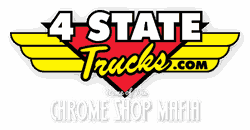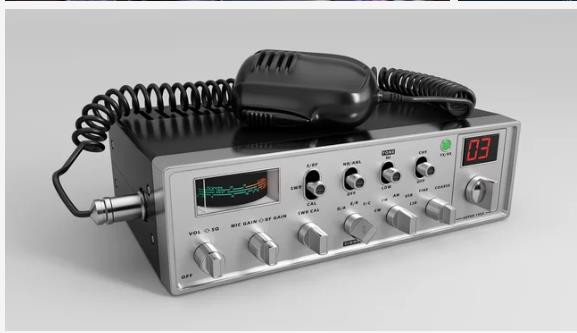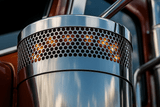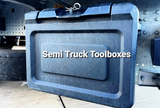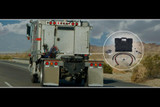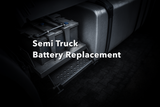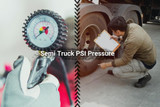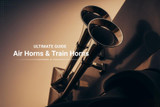CB Radios Ultimate Guide
“10-4 Roger.”
Despite the rise of messaging apps, GPS devices with voice-activated messaging, and push-to-talk (PTT) apps, the classic CB radio remains among the most trusted and well-used accessories in a truck driver’s arsenal.
But which one should you buy?
This guide is intended to help you out!
CB Trucker Radio Specs & Tips
Whether you have an expensive or cheap radio, every CB radio unit offers the same power output: 4 watts.
Single side band radios have 12 watts. These are less common.
The FCC sets the standard rate of 4 watts for all CB radios. The CB radio antenna is what determines the range of your radio broadcast. So, buying a more expensive radio doesn’t mean you’ll get a stronger, broader signal range.
The average frequency range falls between 1-10 miles.
Common Features on Premium CB Radios
- Weather alerts: real-time weather updates
- PA system: option to attach a speaker to the back of the radio and amplify the voice through it
- Backlit display: more visibility if you’re a nighttime driver
- SWR meter: used to tune your antenna (some are built directly into the radio)
- Single side band: 12 watt radio that only allows you to talk to others who have a SSB radio.
- Bluetooth setup
- Channel scanning: let’s you avoid manual search
How to Choose a CB Truck Radio Antenna
A longer antenna means a longer frequency range. When it comes to performance, the antenna is your number one priority.
The build quality of your antenna matters. Choose reputable aftermarket manufacturers. If you want stronger performance, expect to spend a bit more money. Ignore antenna wattage ratings.
Your antenna’s wattage rating simply represents how much power it can withstand before melting.
Antennas with a high wattage rating aren’t any better than low wattage versions. This is because your standard CB truck radio output remains the same: 4 watts.
Types of CB Antennas Explained
Fiberglass Antennas
A fiberglass CB antenna is an insulated coil of copper wire covered with a protective fiberglass rod - perfect for off-road commercial vehicles.
It’s a “top-loaded” design where the coil is typically wound more densely towards the top of the antenna.
The small threaded metal rod at the very top can be fine-tuned to the right frequency.
- Pros: really durable material
- Cons: not the broadest range possible, although still a good range
Average ranges for fiberglass antennas:
- 2-inch length = 2-3 mile range
- 3-inch length = 3-4 mile range
- 4-inch length = 4-6 mile range
- 5-inch length = 5-7 mile range
Center Load Antennas
Commonly known as “trucker antennas,” these are frequently used on semi trucks. Center load antennas get approximately 7-10 miles. These have three main parts:
- Lower Shaft
- Coil
- Whip antenna
The thick stainless steel lower shaft comprises the base part of the antenna that mounts to the truck’s mirror bar.
The coil is the “center load,” encased in plastic; this is the middle portion. This should be positioned above the roof of the truck for the best performance.
The top section is a thin, flexible stainless steel whip used to radiate the frequency waves. The whip can be adjusted or tuned manually.
- Pros: Top-notch performance (besides the 102” whip antennas)
- Cons: High-price and prone to impact damage
Magnetic Mount Antennas
Often called “mag mounts,” they are convenient and easy to use. Magnetic mounts contain the antenna (made of fiberglass or stainless steel), coaxial cable (runs through truck window or door seal), and a powerful magnet at the base (flat circular connection point).
The base can attach to any flat surface on your truck - usually the exterior cab roof. It’s perfect for leased trucks. You can move your mount from one vehicle to another. Worried about thieves? Just take it off your roof and place it in your cab overnight. Simple.
Pros: easy to install and performs well on metal roofs
Cons: lower durability, less stability, and potential clearance issues if you mount it too high
Here are the general ranges for a magnetic mount antenna:
- 3-inch length = 3-4 mile range
- 5-inch length = 5-7 mile range
102” Whip Antennas
The most efficient, resonating CB radio design you can get. This is a long, stainless steel rod measuring exactly 102 inches in length (8.5 feet). It’s a quarter-wavelength antenna for CB radio frequency range of 27 MHz.
The antenna mounts onto a heavy-duty spring at the base that absorbs road vibrations and shocks. The spring allows for the antenna to bend without breaking if hit by branches, low clearance bridges or overpasses.
Pros: unmatched performance, minimal tuning necessary, and durable construction
Cons: extreme physical size risks damages or stress on the mount
Best Brands & Models
Cobra CB Radios
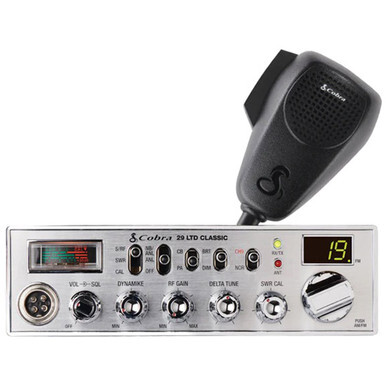
User friendly design and rugged durability. Recognized as the #1 professional trucker brand when it comes to radios.
President Electronics CB Radios
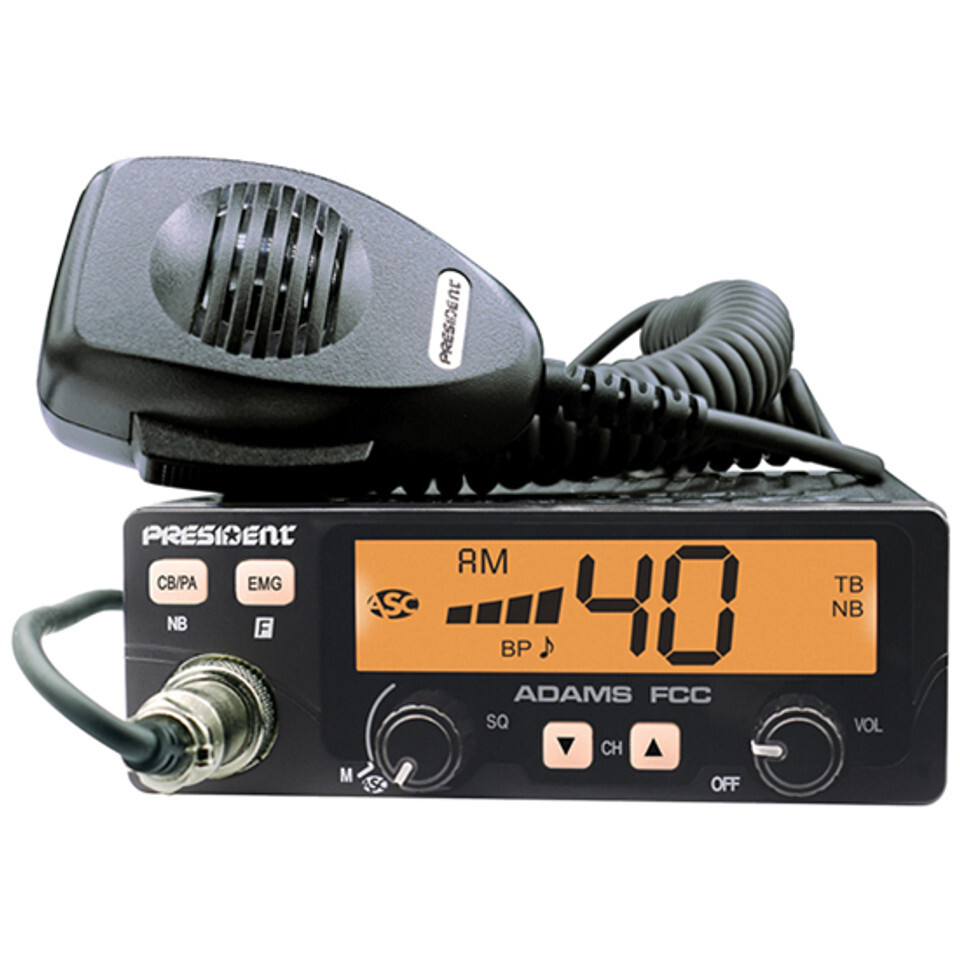
Amazing digital features, durable build quality, and built-in signal filtering. With over 45 years in the business, President Electronics CB radios feature amazingly long product warranties (2 to 3 years) and great customer support.
It’s packed to the brim with high-end features, including: FM mode support, CTCSS/DCS codes, automatic squelch control (ASC), noise reduction circuits (NRC), automatic SWR meter (in-built), dual watch, and a public address (PA) functionality.
Uniden CB Radios
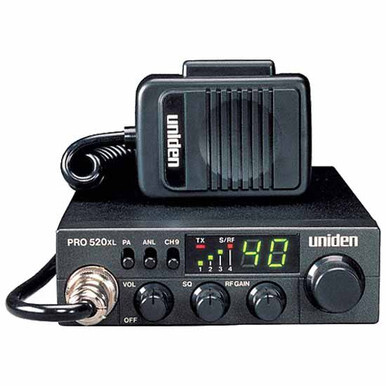
An established Japanese communications company that creates radios for multiple brands, like Midland and Realistic. Known for a solid audio clarity that resembles that of President Electronic products.
Galaxy CB Radios
Great starter option. Although not as widely recognized, Galaxy radios have a reputation for being really budget-friendly and easy to set up. It’s sometimes seen as a less polished alternative to Cobra, President Electronics, or Uniden.
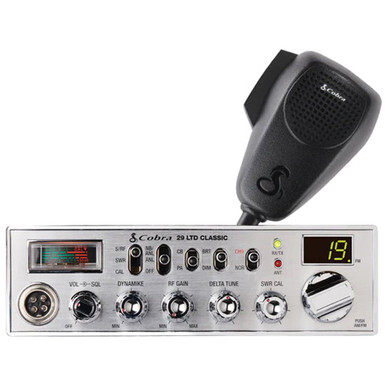
Alternatively, another great starter option is Pana Pacific CB radio brand.
Midland CB Radios
Durable, water-resistant setup that delivers long-lasting performance. Midland is among the oldest, most reliable names in the business, founded in 1959 in Kansas City, Missouri.
Tuning the CB Antenna
Tuning to the right frequency is everything. You’ll need to get the right antenna length. This depends on your commercial truck’s make and model.
Take some readings from a Standing Wave Ratio (SWR) meter. This will show you how well the power from the transmitter is being transferred to the antenna. A ratio of 1:1 is perfect. It means all of the power is getting used.
Some high-priced CB radios have an SWR meter built in! If not, you can buy them online for dirt cheap. Once you get some readings, you’ll know whether to shorten or lengthen the antenna.
Too long = signal mismatch.
Too short = you’re throwing away money with a reduced signal.
An ideal reading should be below 1.5:1. 2.0:1 is considered poor. 3.0:1 and above can damage your radio.
Is the CB Antenna Too Long?
- If your SWR reading on Channel 40 is HIGHER than on Channel 1.
Is the CB Antenna Too Short?
- If your SWR reading on Channel 1 is HIGHER than on Channel 40.
If it’s too short, you’ll need to fix your antenna length.
Fixing it depends on the type of setup you have. Adding a spring to the antenna’s base can give you added length.
Or you could add an additional component, like a quick disconnect.
Using a CB Coax Cable to Connect Your Antenna & Radio
All coax cables will get the job done. You might prefer a certain style. You also might need a specific length. You’ll need to see where you’re going to mount the CB radio. After that, figure out how much cable length you need.
CB Antenna Mounting Brackets
The CB antenna mounting bracket fastens onto the surface of your truck or your truck mirror.
Some aftermarket CB mounting kits are specific to the product you buy; others vary based on where you install your antenna. Some mounts are made for your semi truck’s make/model.
A lot of mounting brackets come with the studs you need to secure your antenna.
Common CB Radio Usage Mistakes to Avoid
- Mounting the antenna too low
- Using the incorrect coax cable (too short or long)
- Incorrect antenna tuning
- Ignoring the ground plane
- Buying a high-wattage antenna for a “longer range”
CB Radio Laws & Regulations to Remember
The FCC has ruled that no license is required to operate a CB radio. However, there are potential fines for amplified “linear amps” - an illegal aftermarket modification to your radio. If you’re hauling internationally, over the border to Canada or Mexico, there are different CB band allocations to consider.
CB Radio Accessories to Consider
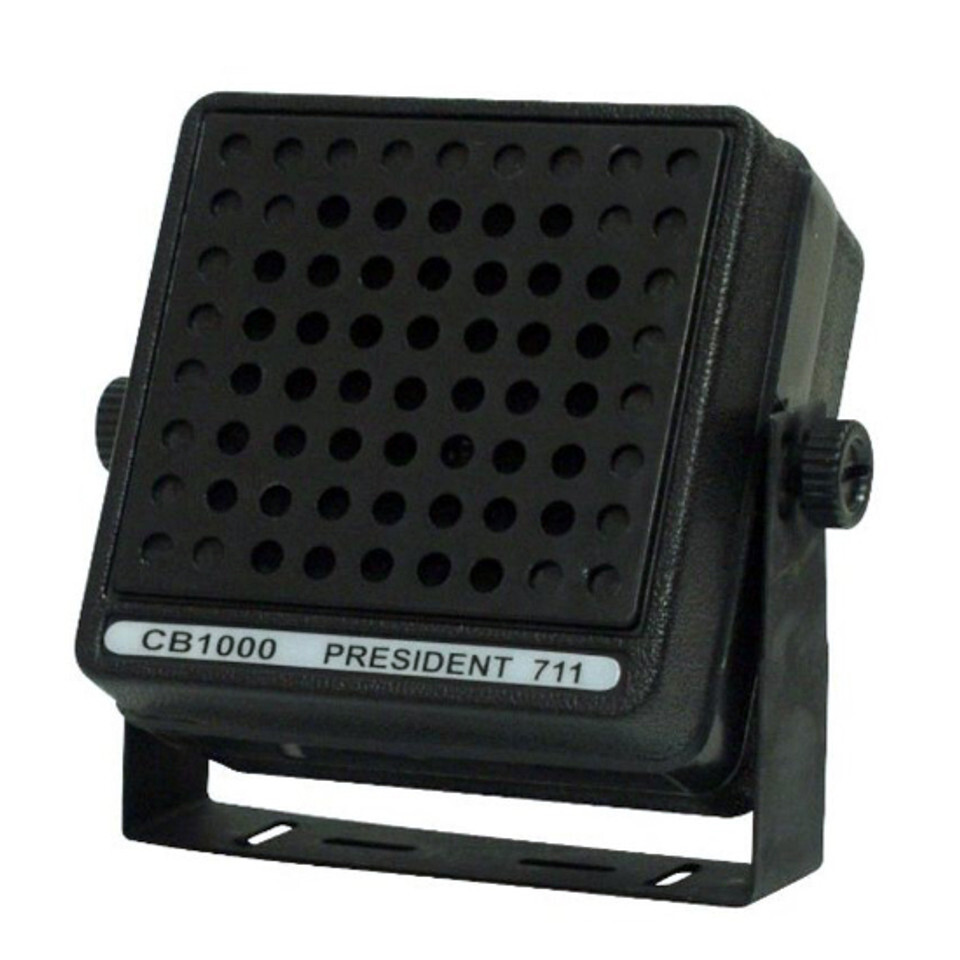 |
CB Radio Speaker 6-12W |
| Noise-Cancelling Microphone | 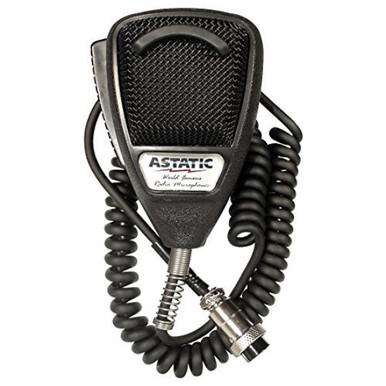 |
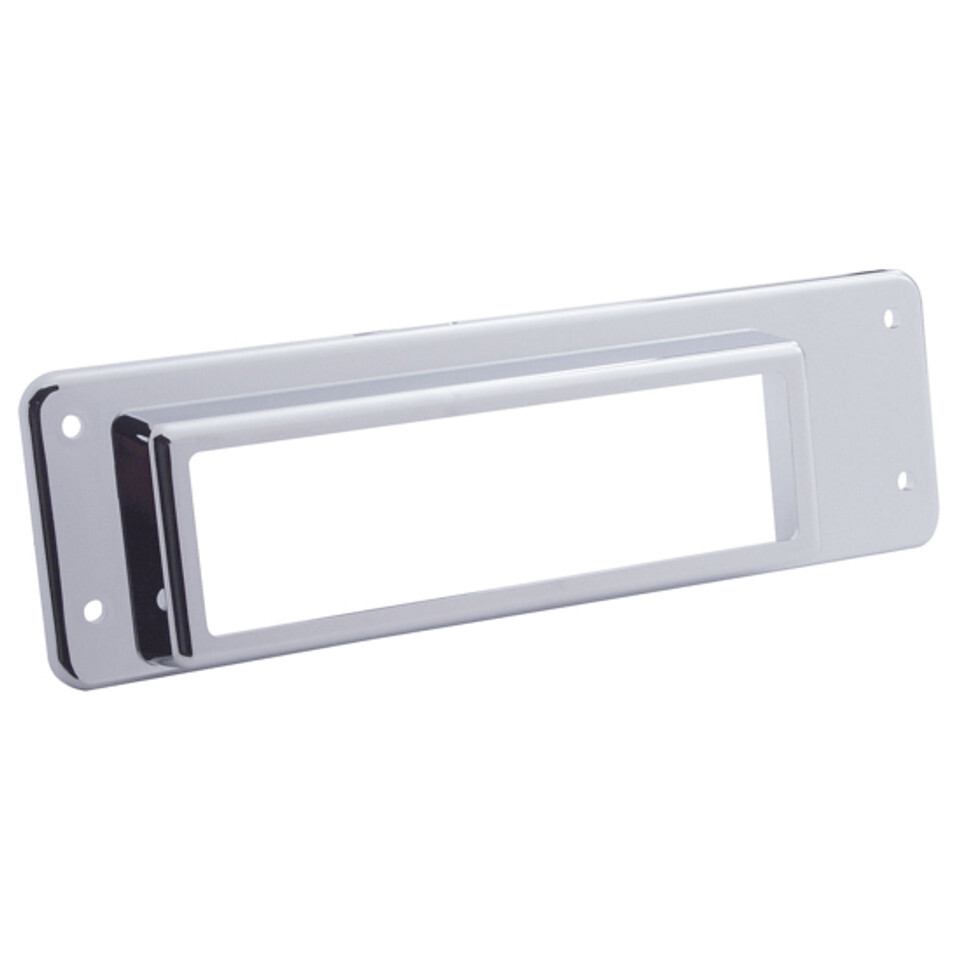 |
CB Radio Chrome Dash Cover |
| Secure CB Radio Mount | 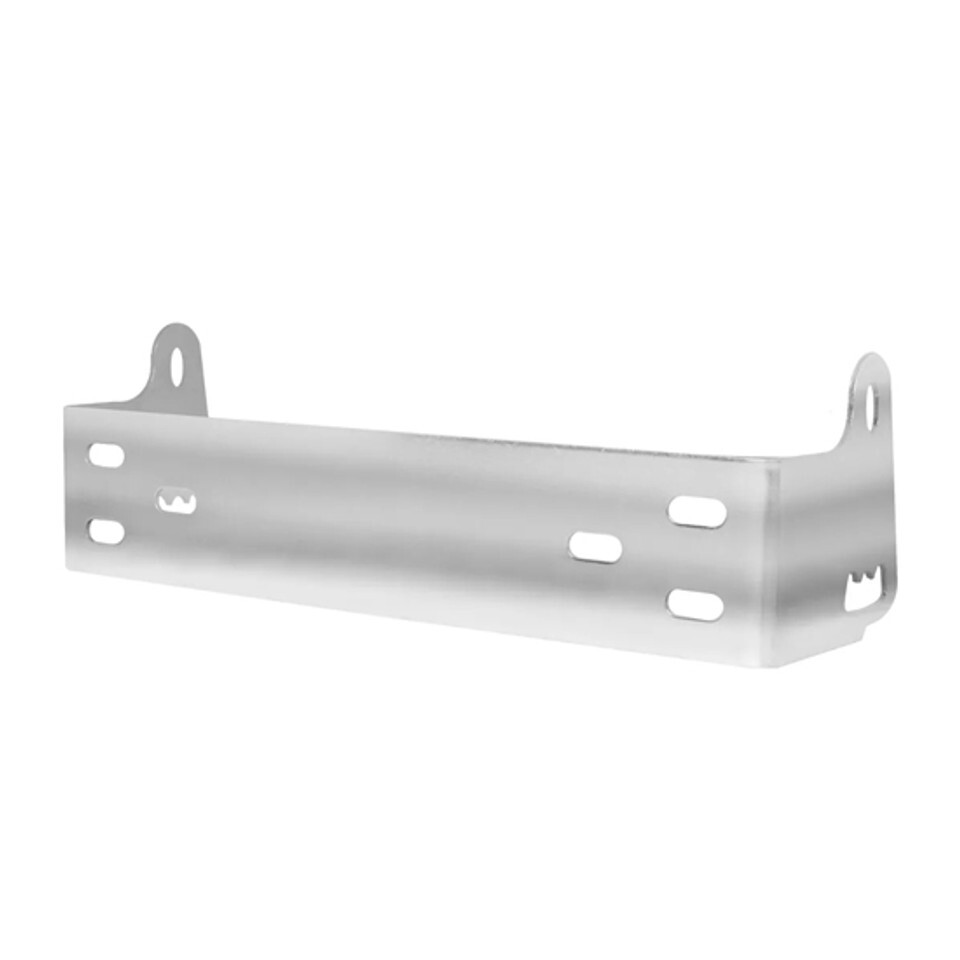 |
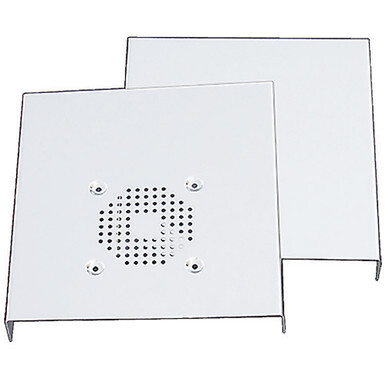 |
CB Radio Cover with Speaker |
| CB Cable Cord Extension | 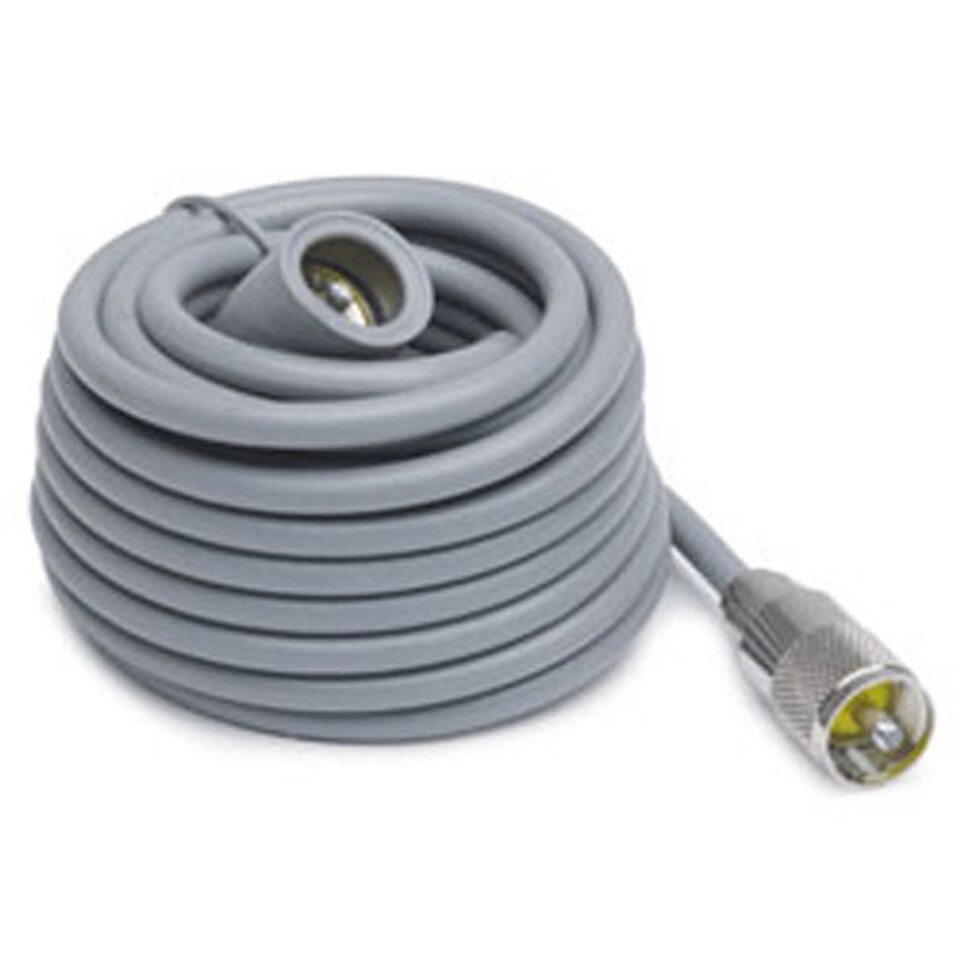 |
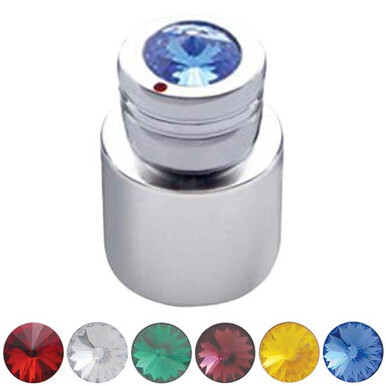 |
Jeweled CB Radio Knobs & Mounting Screws |
Using Your CB Radio: Noise Filtering & Signal Quality
Here are some useful tips for using your radio:
RF gain (radio frequency): receivers’ sensitivity to incoming signals (turning it up clockwise picks up weaker signals from far away, counterclockwise is the opposite)
ANL (automatic noise limiter): clips or limits the peaking of loud sound - effective against random, natural static or general “hiss”
NB (noise blanker): a more sophisticated circuit that reduces types of interference by turning off the receiver for a fraction of a second (combats ambient noise from alternators, ignition, etc.)
Common Radio Use Cases for Most Truckers
- Emergency communication in no-signal zones
- Convoy coordination
- Updates on traffic, road hazards or weigh stations
- Crowd-source rerouting or parking info
- Chatting with the trucker community
How to Maintain Your CB Radio for the Long-Term
- Clean the connectors regularly
- Protect the coaxial cable from pinching or crimping
- Store the radio indoors when not in use (to avoid damage from elements)
Shop CB Radios, Electronics & Cab Accessories at 4 State Trucks
Completely enhance your driving experience with premium aftermarket accessories and parts in one spot: 4 State Trucks. Shop on the go with our mobile app.
Recent Posts
-
Buyers Guide to Aftermarket Air Breather Panels
Decorative light panels are an outstanding way to start personalizing your truck. Air breather panel …19th Sep 2025 -
A Buyer's Guide to Semi Truck Tool Box Storage
If there's one thing that a truck driver needs it's more storage space. Buying the right heavy-duty …12th Sep 2025 -
Wet Line Kits for Semi Trucks 101: The Basics Explained
Ready to transform your rig into a hydraulic powerhouse? A semi truck wetline kit can do the trick. …9th Sep 2025 -
Semi Truck Battery Replacement: How to Change & Maintain Semi Truck Batteries
When it comes to your semi truck’s power system, batteries are the lifeline for nearly any applicati …5th Sep 2025 -
What PSI Should Semi Truck Tires Be?
Getting the right tire inflation pressure on your semi-truck can prevent underinflation (wearing dow …29th Aug 2025 -
The Best Heavy Duty Shocks for Semi Trucks
Aside from your truck's engine, heavy duty shocks are among the most critical parts that that affect …25th Aug 2025 -
Air Horns for Semi Trucks: A Complete Buyer’s Guide for Drivers
Looking to add some power to your truck’s voice and match your exterior chrome-polished aesthetic? F …22nd Aug 2025 -
Ultimate Guide: Semi Truck Fuel Tank Accessories
Wondering about the best aftermarket fuel tank accessories and parts to get? Here's a quick guide o …19th Aug 2025 -
Before You Buy: Semi Truck Deck Plates 101
Looking to cover your truck’s frame and get a little more protection, easy access to components, and …14th Aug 2025 -
Semi Truck Boot Brush Guide: Does it Really Keep Your Cab Clean?
Step-mounted boot brushes are aftermarket cleaning devices that attach to a truck’s exterior steps; …11th Aug 2025
